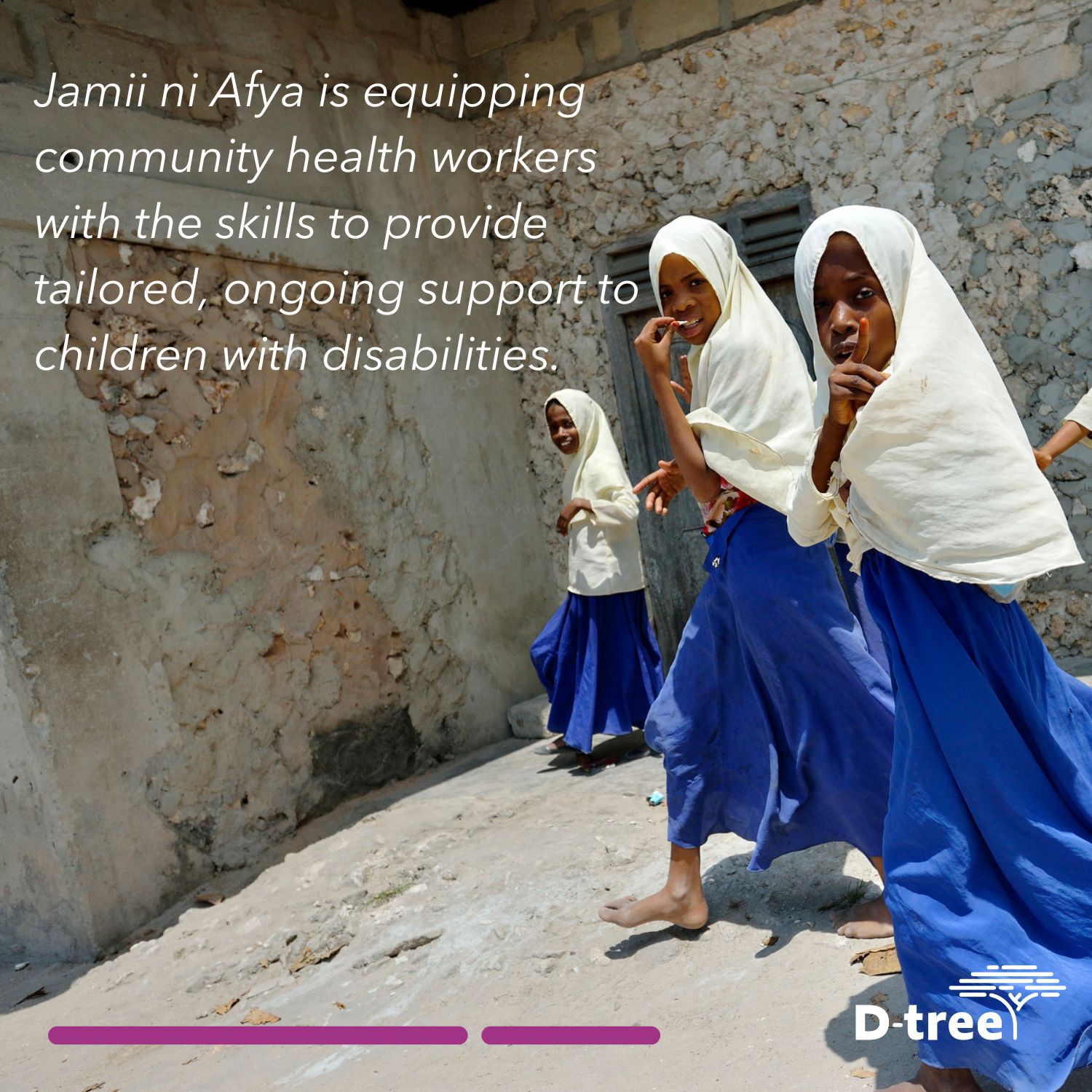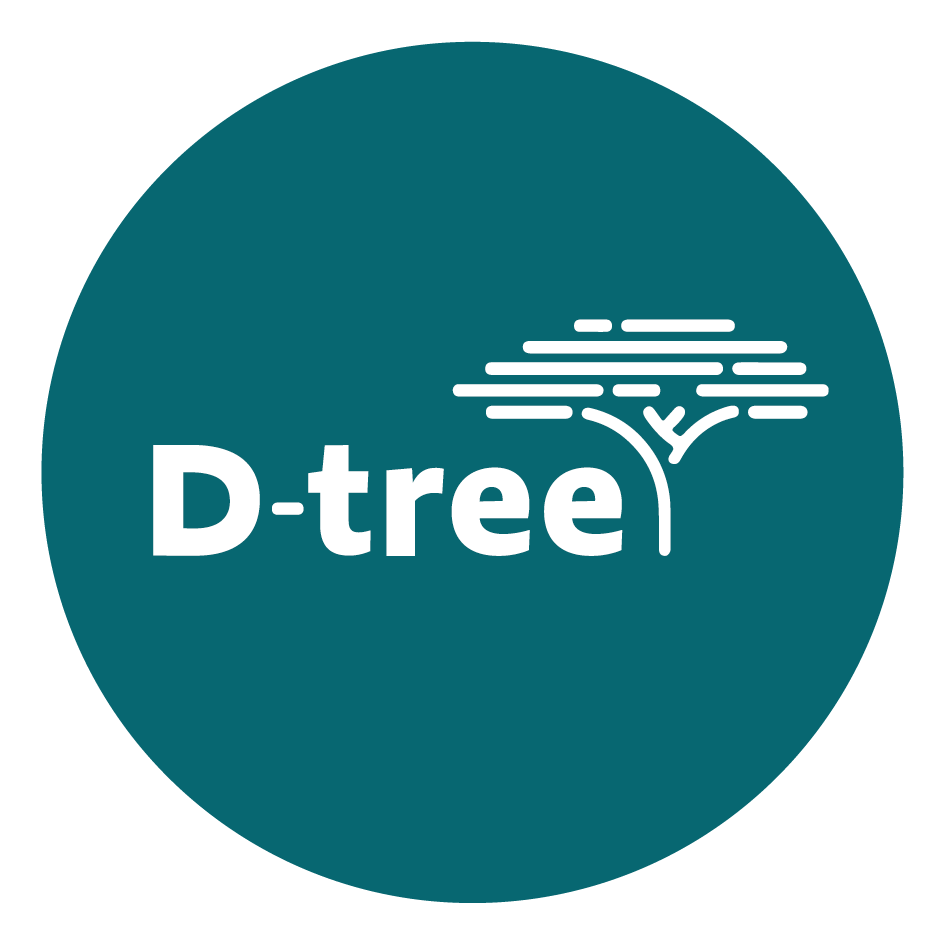Last Tuesday, December 3rd, was the International Day for Persons with Disabilities. In light of this, we are highlighting some of the work we are doing to improve the lives of children living with disabilities in Zanzibar and discussing what needs to be done to complete their care journeys, ensuring no child is left behind.
Following findings from implementation research that highlighted a critical gap in the support community health workers could offer to children with disabilities and their caregivers, D-tree’s Jamii ni Afya program has taken action to address this. These efforts have brought Zanzibar one step closer to complete care journeys for children with disabilities but more needs to be done.
Jamii ni Afya is equipping community health workers with the skills to provide tailored, ongoing support for children with disabilities and their families. This is a necessary first step to increase the chances for these children to thrive in life. Early detection of developmental delays and disabilities is a key step and community health workers in Zanzibar are now trained to monitor developmental milestones during routine visits, supported by the Jamii ni Afya app and system. The app supports community health workers in Zanzibar to identify signs of delays early allowing for timely intervention that can prevent further complications and improve the overall health trajectory for children with disabilities and the support provided to their caregivers.

The community health workers are also equipped with knowledge of referral pathways. Once children are identified as having a disability, community health workers play an essential role in offering support to parents and caregivers and connecting families to the right care. They support by following up on treatment plans and helping caregivers implement recommendations, promoting better outcomes through continuous, community-based support.
Finally, one of the biggest challenges for children and people living with disabilities in Zanzibar is the stigma and misconceptions surrounding disabilities. Community education through community health workers is an efficient way to tackle this challenge. By advocating for the rights of children with disabilities they foster more inclusive attitudes within families and communities and by arming caregivers with knowledge they can better support their children’s growth and development.
Despite the progress, much remains to be done. To build a fully inclusive healthcare system, a comprehensive disability-inclusive approach is needed across all health system levels. This includes better coordination between community health efforts and national healthcare structures, investments in rehabilitation services and specialized care and stronger policies and friendly infrastructure to support children with disabilities.
As we look toward achieving health for all, the integration of children with disabilities into this framework is crucial. The work of community health workers through Jamii ni Afya is a promising start, but sustained progress will require additional resources, training and systemic changes to ensure that children with disabilities have access to the full continuum of care they need to thrive.

